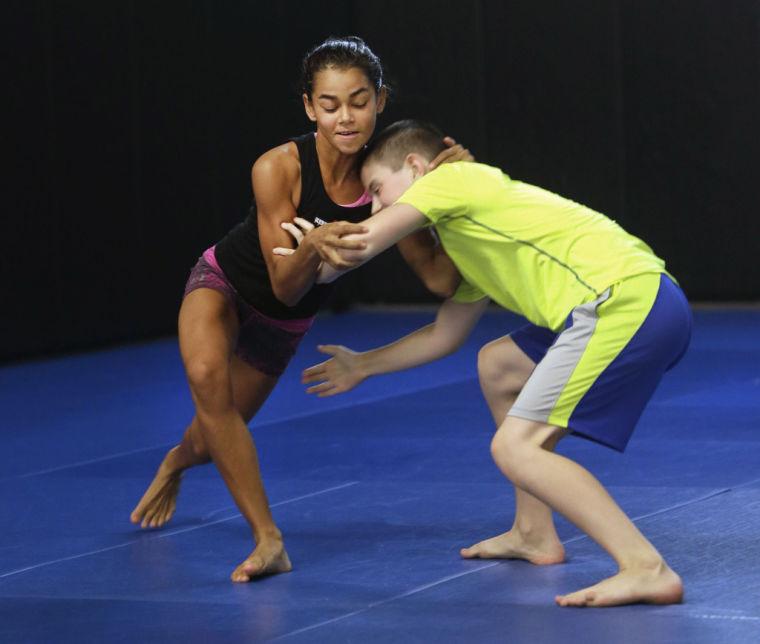As the midterm spree draws to a close, students are already having to schedule courses for next semester. Yet the University’s cornucopia of classes is missing something practical and self-empowering: martial arts.
Knowledge of self-defense is relevant to people of all countries, ages or social status. LSU students are no exception. According to the University’s latest Annual Security and Fire Report, LSU had three cases of forcible sex offense, 13 robberies, 11 aggravated assaults, 49 burglaries and two motor thefts reported on campus in 2012.
We need a form of martial arts offered as a kinesiology course or UREC GroupX Fitness class — it shouldn’t be difficult to find instructors for karate, taekwondo, judo, mixed martial arts, aikido or jiujitsu. In fact, Chinese kung fu, Chinese self-defense and martial arts are on a list of LSU courses offered six to 10 years ago, meaning a professor could reinstate one of these with ease.
Had a victim of campus crime practiced martial arts for a period of time, I am sure the annual campus crime statistics would be different. Such classes prime you to know how to respond to guns, knives and the untrained fighters who have only their fists. It trains you to use your left hand if your right is hurt, and which style of kick to use depending on where your attacker is positioned.
The longer you train, the more the moves become second nature. This understanding of what both you and your opponent are capable of gives you a mental upper hand. If you know from the outset you can win a fight, you will perform much better than the average person who flounders about in the hopes of getting lucky.
The key is that LSU pick a system that is applicable to real world situations.
The UREC currently offers “Cardio Kick,” but in my experience with alternative kickboxing classes, there is much greater focus placed on moving your body than on practical, in-depth technique.
The facility also offers a specialty course called iBox, which costs students $30 for 10 sessions at the beginner level and might teach you how to punch with gloves in an environment where everyone understands the rules of combat, but people need access to a greater spectrum of techniques.
Leisure classes are not much help, either. While I think German longsword fencing sounds pretty epic, students must pay a $66 class fee and $75 material fee. Such techniques are also reserved for highly specific situations, in lieu of more common scenarios.
The occasional $25 Rape Aggression Defense (RAD) self-defense sessions LSU hosts do have some merit, in that they teach women in three sessions totaling 12 hours how to defend themselves against attackers. The main problems with this are that the program excludes men, and such a small amount of practice is not nearly enough for a person to absorb a technique.
Through my own experience in the martial arts, I know that if you have to take time to think through a move, you have already lost. When someone grabs you from behind, your physical reactions must be automatic. Only once you are free do you have the liberty to fully assess the situation.
In the end, we do not live in a kind city. The Baton Rouge Police Department’s crime statistics for 2012 show a total of 70 rapes, 1033 robberies, 1343 aggravated assaults, 3825 acts of burglary and 485 cases of motor theft. Worst case scenario, I know how to defend myself with a knife, a tree branch, a tuna can and my hands. I know the first moves of the average attacker.
I understand what it takes to survive. I want my fellow students to understand, too.
Opinion: Martial arts classes should be available at LSU
October 20, 2013
In this photo taken Thursday, Aug. 29, 2013, Lea Bivins, 11, left, and Hunter Bean, 12, work on their wrestling moves during pankration practice in Sacramento, Calif. A bill before the Legislature by Assemblywoman Susan Bonilla, D-Concord, would authorize the California State Athletic Commission to establish regulations for youth pankration competitions. Pankration, which has dramatically grown in popularity in California during the last decade, combines skills from karate and jiu-jitsu. It traces its roots back to ancient Greece where the only rules for the sport styled from boxing and wrestling prevented competitors from biting or gouging each others each others eyes.(AP Photo/Rich Pedroncelli)





